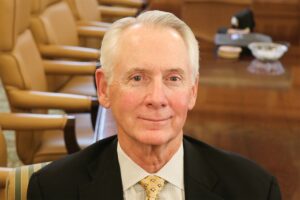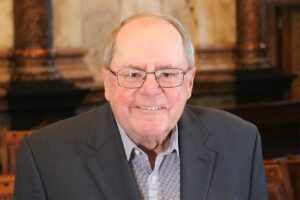Interview of Thomas (Tim) Owens, October 14, 2022
Interviewed by Nancy Parrish
Owens described his career path from military officer to private attorney to city council member to the state legislature. He served seven years in the Kansas House and then ran for the Kansas Senate where he chaired the Senate Judiciary Committee. Owens recounts the pressure from Governor Brownback to change the merit selection procedure for judges, making them elected. Also, the education bills were now being sent to the Judiciary committee because of lawsuits and that also caused friction because of the court's decisions on resolving the Montoy and Gannon cases. Owens also dealt with Show Morea death penalty bill which failed 20-20. He described frequent trips "across the street" carrying messages between the Chief Justice and the Governor's office. He lost his bid for reelection to the Senate in 2012 and ended up teaching at Johnson County Community College and retired from the military as a full colonel. He even served a year as municipal judge in Lenexa. Show Less






